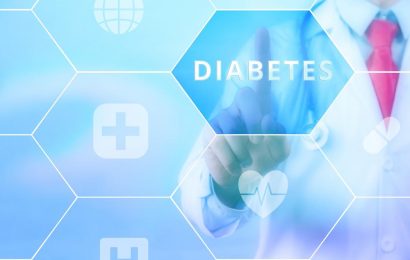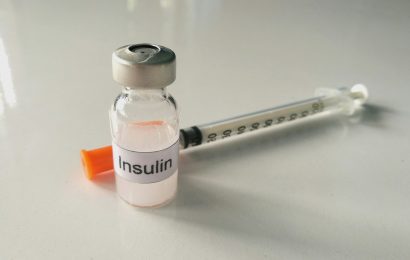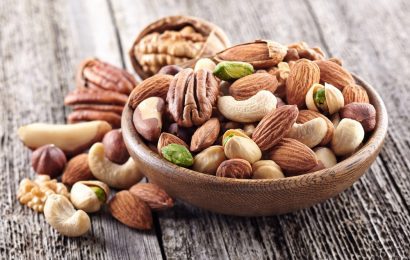Amazing but apparently true: Eating carbohydrates AFTER some protein, fat, or possibly fiber causes much lower after-meal blood sugar spikes than eating the carbs first.
Two small new studies from Cornell University in New York and the University of Pisa in Italy, respectively, showed the same thing. At Cornell, two groups of people with Type 2 diabetes ate the same meal: some bread, fruit juice, meat, and green salad. One group started with the bread and juice; the other with the meat and salad. A third group ate everything together as a sandwich.
At the beginning of the meal, and every 30 minutes thereafter for three hours, subjects had their glucose and insulin levels checked. The group that started with the bread had after-meal glucose spikes about 50% higher than the group that started with protein and vegetables. Those who ate everything together as a sandwich had about a 40% higher glucose spike than those who started with the protein and vegetables.
All three groups repeated the meals in different orders after a week and again a week later, said lead researcher Alpana Shukla, MD. In all groups, eating protein first led to much smaller glucose spikes, “comparable to what we see with diabetes medication.”
The Pisa study was longer-term and done “free-range,” not in a lab. Each group of people with Type 2 diabetes was given a meal plan and allowed to choose the specific foods they wanted, as long as the foods added up to the same number of calories. One group was told to eat their protein or fat food first, the other to eat their carbs first.
After four months, the group that had been eating carbs last had an average HbA1c level (a measure of glucose control over the previous 2–3 months) about 0.3% lower than the group that ate carbs first. The carbs-last group had an average fasting blood sugar (FBS) of about 18 mg/dl (1.0 mmol/l) lower, and their after-meal blood sugar spikes were lower by an average of about 34 mg/dl (1.9 mmol/l).
How could eating foods in a different order change glucose levels so much? The researchers give several possible explanations.
People who ate carbs last secreted less insulin. But their glucose was still lower. Perhaps this is because, as measured in the Italian study, they had higher levels of glucagon-like peptide-1 (GLP-1, the hormone mimicked by drugs such as exenatide [brand names Byetta and Bydureon], liraglutide [Victoza], albiglutide [Tanzeum], and dulaglutide [Trulicity]). GLP-1 seems to make insulin function better and reduces hunger.
Researchers thought reduced hunger might be a good reason to start with protein and/or fat. “When people eat carbohydrates at the end of the meal after consuming vegetables and protein, they will probably end up consuming somewhat less,” Dr. Shukla noted.
As Domenico Tricò, MD, one of the Pisa researchers said, it might also be that protein, fat, and fiber take longer to digest, which slows how quickly sugar gets in your system. Dr. Tricò has previously studied taking a fat or protein “pre-load” or snack before a high-carb meal.
The pre-load reduced after-meal glucose levels, mainly by slowing the rate at which carbs absorbed. In the new study, Dr. Tricò’s team shows that you don’t need an extra snack. Just start with the proteins and fats (or possibly fiber, although they didn’t look at that option).
Notice how different eating carbohydrates last is from the way many people usually eat. In restaurants, you might go in hungry, and before you even order, the waiter has brought you a bowl of French bread to get you started. You’re on your way to a big glucose spike before your meal even begins.
Consider starting with protein, going to a vegetable, and only after that eating starch. Why not? Bread is more of a dessert than an appetizer, isn’t it? How much difference is there between bread with butter and cake with frosting? Eat sugars last of all, whether they are fruits or sweets.
Of course, this reordering will only take you so far. I doubt it will help to have an extra-large slice of pie with ice cream on it and think, “It won’t hurt me because I ate some protein and salad first.” Lower carb is still healthier. But in the context of reasonably healthy food, eating carbs last appears to be better than eating them earlier.
Want to learn more about reducing after-meal blood sugar spikes? Read “Strike the Spike II,” “Dealing With After-Meal Blood Sugar Spikes? Don’t Skip Breakfast,” and “Eat More Protein at Breakfast to Prevent After-Meal Blood Sugar Spikes.”





